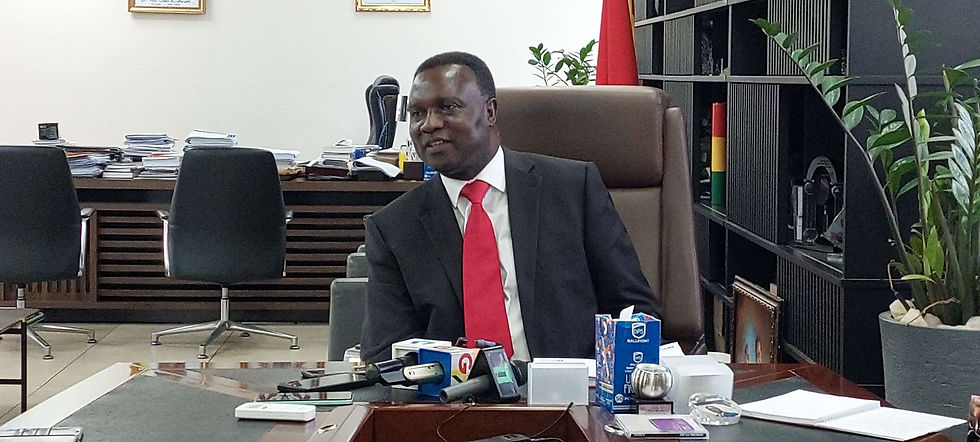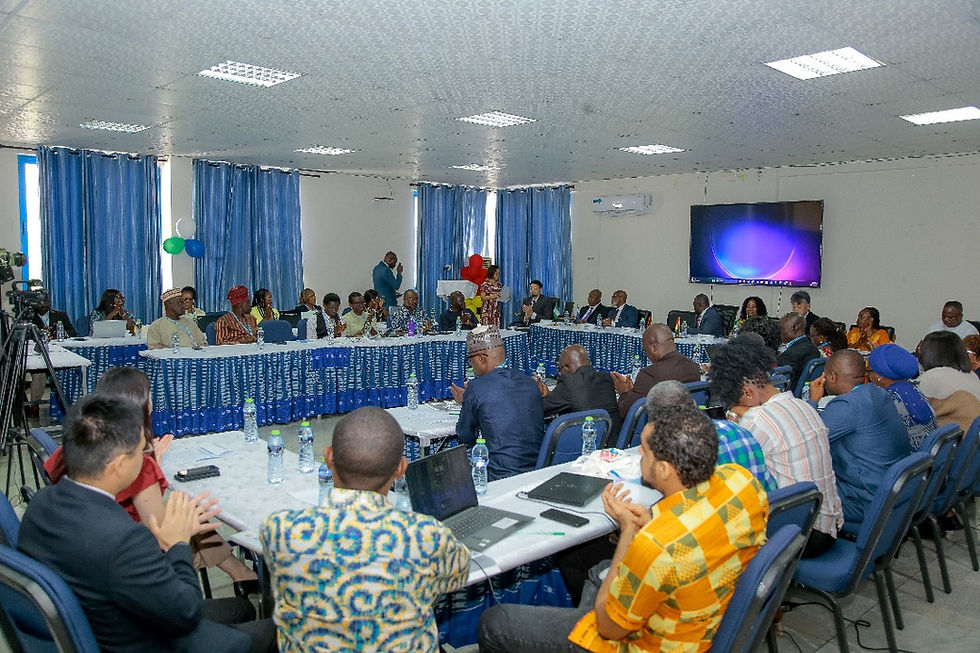"Investing in the education of African children is an investment in humanity" – Dr. Adutwum
- Think News Online

- Oct 14, 2024
- 3 min read

Education Minister, Dr. Yaw Osei Adutwum, has announced bold plans to revolutionize the country’s Technical and Vocational Education and Training (TVET) sector as part of a broader push to elevate the nation's education system.
Speaking on the progress of educational reforms, Dr. Adutwum emphasized the critical role TVET plays in preparing Ghana’s youth for the demands of the modern workforce and underscored the government’s commitment to enhancing the quality and accessibility of technical education.
“Investing in the education of African children is an investment in humanity,” Dr. Adutwum remarked, highlighting how education is key not only to individual success but also to the broader development of families and societies.
Reflecting on his personal journey, he shared how his education in Ghana laid the groundwork for his contributions both at home and abroad, including in the U.S. education sector.

At the heart of this reform is the construction of nine new TVET institutions, as well as the renovation and retooling of existing schools.
According to Dr. Adutwum, these new facilities will be equipped with state-of-the-art tools, thanks to partnerships with countries like China and Austria.
“We are ensuring that the equipment our students use aligns with what they will encounter in the workforce,” he stated, stressing that graduates will be job-ready and competitive in both local and global industries.
The minister was clear that the education provided in these TVET institutions will meet international standards, rivaling those found in developed countries such as the UK.

By integrating classroom instruction with hands-on training, students will be better positioned to transition smoothly into the workforce.
"We are finding the sweet spot between TVET and technology—creating students who are both mind-strong and hands-on,” Dr. Adutwum explained, emphasizing the importance of a strong foundational education.
Despite the challenges brought by the COVID-19 pandemic, Ghana’s government remains steadfast in its mission to modernize education.
Dr. Adutwum also revealed that a new high school will soon be completed, designed to provide students with the 21st-century tools they need to succeed.
“We cannot educate 21st-century children in 19th-century buildings and expect 21st-century outcomes,” he asserted.

With new furniture set to arrive for the renovated TVET schools, the minister expressed optimism about the future of Ghana’s education system.
He also commended President Nana Akufo-Addo for his leadership in driving these reforms.
“We are grateful for the president’s visionary push in education,” Dr. Adutwum concluded.
Ghana’s focus on TVET marks a pivotal step towards empowering its youth with the skills and knowledge needed to compete on both local and global stages, ensuring a prosperous future for the nation.
In a move towards promoting a shared sense of identity among Africa’s youth, H.E. Prof. Mohammed Belhocine, African Union Commissioner for Education, Science, Technology, and Innovation (ESTI), has proposed the creation of a foundational book that every African young person should read.

The idea, he said, is to develop a series of texts that would serve as core educational material across the continent, available in multiple languages, including vernaculars.
Speaking during a forum on education, Prof. Belhocine emphasized the importance of fostering a unified African identity through education, especially by ensuring that the continent’s rich history, culture, and values are imparted to the younger generation.
"If we were to have one book that all African young people must have read in any of our languages, this should be it," he said.
He highlighted the need for a structured approach to creating this body of work, starting with one volume and potentially expanding into multiple editions.

The proposed volumes would focus on essential topics such as African history, Pan-Africanism, and the integration of the continent—subjects that Prof. Belhocine believes are critical for shaping a new generation of African citizens.
"In addition to the skills and knowledge young Africans acquire, there are key elements of African history and identity they must understand, which are of great value to us all," he remarked.
Prof. Belhocine also pointed out that UNESCO would be a crucial partner in this initiative, as the organization has experience in developing educational materials for global audiences.
He suggested that a commission be established to oversee the development of these volumes, ensuring that they reflect the diversity of the continent while promoting unity and shared values.

"This is not just about education in the traditional sense; it’s about cultivating a deep connection to Africa’s heritage," Prof. Belhocine explained.
"By making these texts available in multiple languages, we ensure that no young African is left behind in learning about our collective past and our shared future."
He thanked the forum for its patience and expressed optimism that this initiative could serve as a cornerstone for building a more united and informed African society.
"The value of knowing our history and understanding our role in shaping Africa’s future cannot be overstated. It is a gift we owe to the next generation," he said.
Story by: Joshua Kwabena Smith








Comments